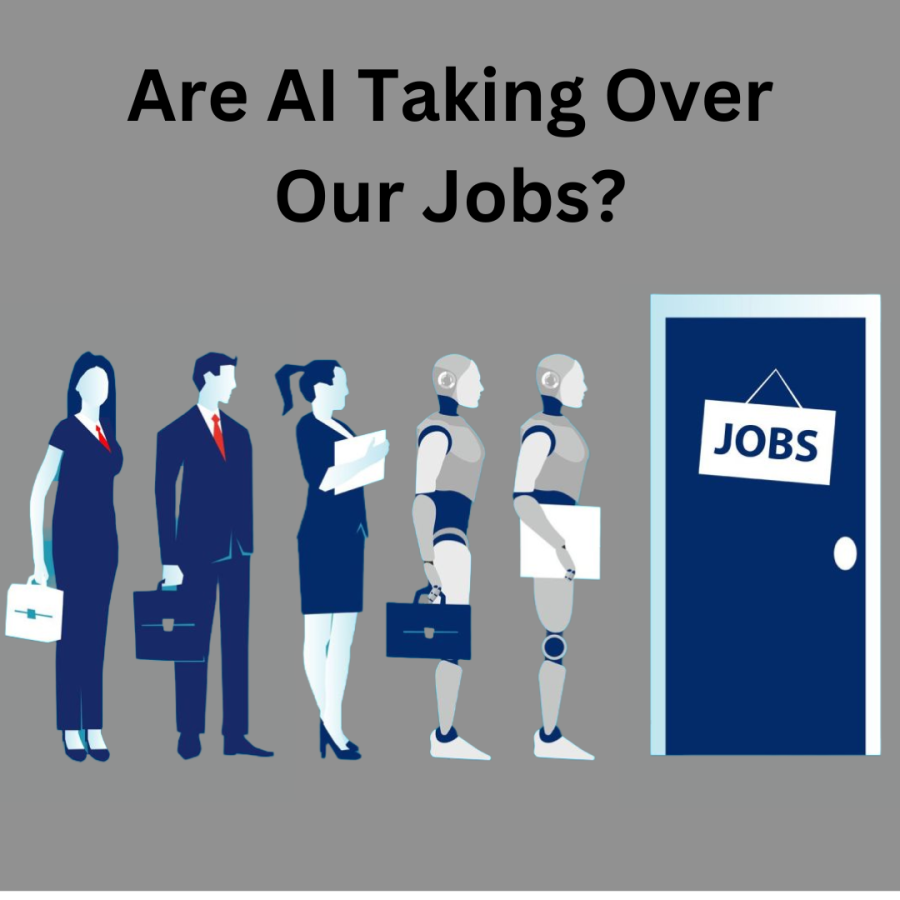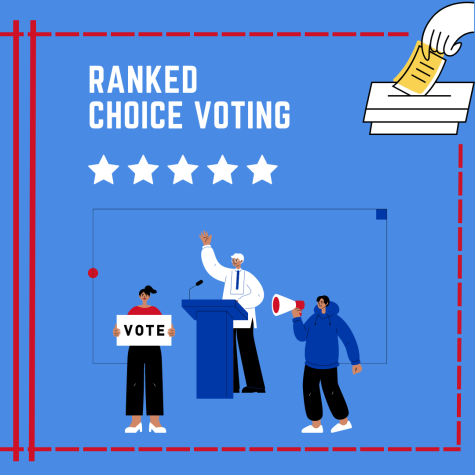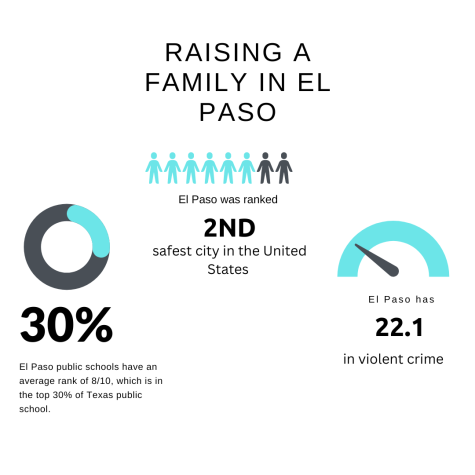Opinion: Is AI Taking Over Our Jobs?
Advances in AI technology have made it so that not even creative fields are safe from the threat of replacement.
Fast-food restaurants, grocery stores, and many more public spaces have recently implemented more technology that has diminished the number of employees present. As society becomes more reliant on technology, many services have shifted from human operated to machine operated. Artificial intelligence technology will likely take over a range of occupations in the future, typically ones associated with customer service, data processing, assembly, and transportation.
Dependence on AI is attributed to global advances in technology. Artificial intelligence is the ability of computer systems or machines to perform tasks through the simulation of human intelligence. AI has skyrocketed and is deemed as a trustworthy and effective technology when it comes to replacing jobs involving cashiers, drivers, and translators.
Even though most of the population is aware of AI presence in workplaces, many people believe the dependence on AI is currently at its maximum. A commonly held belief is that AI machines will not replace human employees because they don’t possess the ability to engage with customers. Many people believe forming emotional connections with customers is a crucial part of a business, and that, therefore, AI cannot replace humans.
Nevertheless, AI technology is capable of performing tasks that humans cannot perform, such as accurate and quick processing. Therefore, AI dependence will continue to rise rapidly. Businesses both small and large can benefit from AI, considering it is extremely proficient in processing and analyzing data.
Although AI technology is a significant investment for companies, AI intelligence is treated as an object that does not require pay or compensation. Therefore, owners of businesses can maximize profits and increase productivity. According to a survey by Business News Daily, 65% of respondents suspect they could lose their jobs to AI in the next couple of years.
When it comes to jobs such as doctors, lawyers, and police enforcement officers, AI technology poses less of a threat. A major aspect of this fact is the innate nature of humans to trust fellow humans with matters of personal health, safety, and legal issues. Instead, the public feels more confident in relying on AI technology for services including transportation, education, and basic purchasing.
It is undeniable that AI is increasingly impacting both the workplace and several other aspects of life. This shift will take over many job positions that can be fulfilled more efficiently and in a more cost-effective manner through AI. As manufacturing jobs have been replaced by robots in the past, AI technology will continue to replace a significant fraction of occupations and services due to its higher productivity and improved performance.














